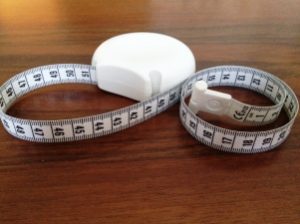End A Binge Eating Disorder
 Binge eating disorder is characterized by eating large amounts of food in one sitting.
Binge eating disorder is characterized by eating large amounts of food in one sitting.
It’s often referred to as being one of the less “glamorous” eating disorders, as binge eaters tend to be stigmatized and shamed by their habits, while anorexics may receive praise or positive attention for being thin.
To end a binge eating disorder, it’s important to know that any eating disorder is a serious mental health condition that will probably require a journey on a long road to recovery. It’s possible to heal, however, with the right mindset and a willingness to get help from qualified professionals.
Get evaluated
The first step to end binge eating disorder is to get evaluated by a physician and, most likely, a psychiatrist. Your general practitioner should be able to do a full physical exam, to determine whether or not the disorder has negatively affected your health, and to refer you to a mental health professional for the next step in your care. A psychiatrist might diagnose you with a condition, prescribe medication and give you some idea of what your next steps will look like in the recovery process.
Join a support group
Many people with eating disorders find it incredibly helpful to join a support group. In this setting, you are free to talk about your feelings, concerns and challenges in a nurturing, encouraging environment. You can make friends who will be able to relate to your struggles and who can provide support in ways that other friends and family members may not be able to give.
Another advantage of an eating disorder support group is that they are often free or low-cost. You should be able to locate a group through your doctor, your healthcare network, your psychiatrist, 12-step organizations or simply by searching online.
See a nutritionist
It’s strongly recommended that you see a qualified nutritionist as well – preferably one who specializes in eating disorder treatment. Some eating disorders can be rooted in severe nutritional deficiencies and can also be exacerbated by years of poor eating habits. Simple adjustments in your diet that are tailored to your unique needs can help tremendously with cravings, while also helping you develop a more healthy relationship with food.
Identify your triggers
One of the most important behavioral tactics for ending a binge eating disorder is to learn how to identify your binge triggers. And while you can work on this in greater detail with a therapist, you can start right now by writing down the times of day you tend to binge, what you tend to binge on, what feelings arise before you binge and how you feel after a binge.
The simple act of recording your patterns in a journal will help you begin to learn how intricately emotions and routine are tied in to disordered eating habits. Make it a habit to do this for several weeks, and share your insights with your counselor or support group.
Source: WomensHealth.gov
 Eating Disorder Self Test. Take the EAT-26 self test to see if you might have eating disorder symptoms that might require professional evaluation. All answers are confidential.
Eating Disorder Self Test. Take the EAT-26 self test to see if you might have eating disorder symptoms that might require professional evaluation. All answers are confidential.